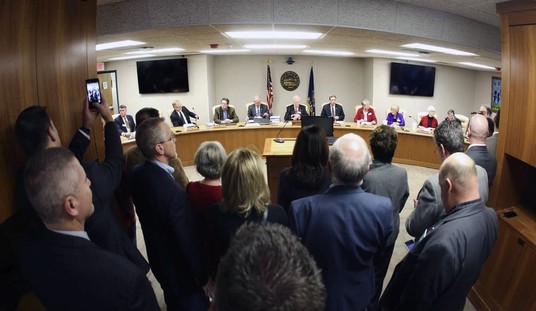Score one more for Gov. Ron DeSantis (R-Fla.) in the legal skirmishes against Disney. U.S. District Judge Allen Winsor issued an order on Wednesday dismissing Disney's federal suit against DeSantis, Florida's Secretary of Commerce J. Alex Kelly, and the members of the board of the Central Florida Tourism Oversight District (CFTOD), which replaced the Disney-run Reedy Creek Improvement District (RCID).
Winsor, a Trump appointee, issued a 17-page order granting the motion to dismiss. In the order, Winsor explains the context of the suit:
This change [replacing RCID with CFTOD]—which works to Disney’s significant detriment—came after Disney publicly criticized another Florida law, the Parental Rights in Education Act. In Disney’s view, this timing was no coincidence. Disney alleges that the Florida Legislature changed the district’s governing structure to punish it for its speech. The issue in this case is whether the Legislature’s action constituted unlawful retaliation against Disney’s speech in violation of the First Amendment.
Winsor summarizes his order by pointing out that "Disney lacks standing to sue the Governor or the Secretary, and its claims against the CFTOD Defendants fail on the merits because 'when a statute is facially constitutional, a plaintiff cannot bring a free-speech challenge by claiming that the lawmakers who passed it acted with a constitutionally impermissible purpose,'" citing an 11th Circuit Court of Appeals ruling from 2015.
At the same time, Disney had standing to sue the CFTOD board in Winsor's view because "it is enough to say that enjoining the CTFOD Defendants from exercising any authority would at least partially remedy Disney’s asserted injury, which includes its operating subject to the new board’s control."
Disney argued that CFTOD operated "under the 'Governor's thumb,'" but Winsor notes that Disney didn't cite any specific actions that it feared the board would take at DeSantis' bidding. Rather, Disney raised its complaint because it couldn't exercise control over the board.
Related: Report From First-Ever Audit Shows How Much Power Disney Had in Central Florida
Another factor in the suit that Winsor points out is that precedent demonstrates that courts cannot consider a legislative body's motivation when it undertakes an otherwise constitutional action. In other words, even if the Florida legislature enacted the statute that replaced RCID with CFTOD as retaliation for Disney speaking out against the Parental Rights in Education bill, that doesn't make the legislative act illegitimate.
"As Disney appropriately acknowledges, the Legislature can determine the structure of Florida’s special improvement districts," Winsor writes. "Disney does not argue that the First Amendment (or anything else) would preclude the Legislature from enacting the challenged laws without a retaliatory motivation" (emphasis in the original).
Disney also held that the legislature was singling it out, which may have been true to some extent, but Winsor points out that "no one reading the text of the challenged laws would suppose them directed against Disney. The laws do not mention Disney." He also declares that Disney couldn't challenge the law because it anticipated that the CFTOD board would automatically act apart from Disney's best interests.
The order concludes, "The clerk will enter a judgment that says, 'This case was resolved on motions to dismiss. Plaintiff’s claims against the Governor and the Department Secretary are dismissed without prejudice for lack of subject matter jurisdiction. Plaintiff’s claims against the Central Florida Tourism Oversight District board members are dismissed on the merits for failure to state a claim.'”
Congratulations to DeSantis and the CFTOD board for winning this battle.
“I’m delighted that this lawsuit, which was nothing more than a distraction, is now behind us," said Martin Garcia, chairman of the CFTOD board, in a statement. "Our board and the district will now continue to make the appropriate changes to operate and function as an independent government agency to promote transparency and accountability while bringing more prosperity to more people in Florida.”
“We are pleased that the district court applied clear precedent to reject Disney’s claim that it, rather Florida’s Legislature and her Governor, gets to choose the officials who will serve on its local government body," said Charles J. Cooper, chairman of Cooper & Kirk, the firm that represented CFTOD. "Disney may own the land in the district, but it does not own the government.”
This is a developing story, and we'll have more info if and when it becomes available.










Join the conversation as a VIP Member